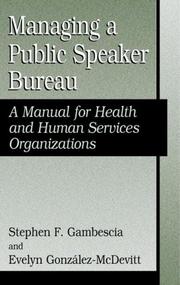| Listing 1 - 2 of 2 |
Sort by
|
Book
ISBN: 9781441959218 9781441959201 Year: 2010 Publisher: New York : Springer,
Abstract | Keywords | Export | Availability | Bookmark
 Loading...
Loading...Choose an application
- Reference Manager
- EndNote
- RefWorks (Direct export to RefWorks)
Health Assets in a Global Context: Theory, Methods, Action Edited by Antony Morgan, Maggie Davies, and Erio Ziglio As global health inequities continue to widen, policymakers are redoubling their efforts to address them. Yet the effectiveness and quality of these programs vary considerably, sometimes resulting in the reverse of expected outcomes. While local political issues or cultural conflicts may play a part in these situations, an important new book points to a universal factor: the prevailing deficit model of assessing health needs, which puts disadvantaged communities on the defensive while ignoring their potential strengths. The asset model proposed in Health Assets in a Global Context offers a necessary complement to the problem-focused framework by assessing multiple levels of health-promoting aspects in populations, and promoting joint solutions between communities and outside agencies. The book provides not only rationales and methodologies (e.g., measuring resilience and similar elusive qualities) but also concrete examples of asset-based initiatives in use across the world on the individual and community levels, including: ¢ Strengthening the assets of disadvantaged women (Germany). ¢ Sustainable community-based development programs (India). ¢ Using parental assets to control child malaria (West Africa). ¢ Asset/evidence-based health promotion in the schools (Romania). ¢ Evaluating asset-based programs (Latin America). ¢ Using social capital to promote health equity (Australia). Health Assets in a Global Context offers a new, positive lens for viewing the world's most resistant public health crises, making it fundamental reading for researchers and graduate students in public health, especially those involved in health promotion, health disparities, social determinants of health, and global health.
Medicine & Public Health. --- Public Health. --- Health Promotion and Disease Prevention. --- Health Administration. --- Medicine. --- Public health. --- Practice of medicine. --- Médecine --- Santé publique --- Medical care. --- Health promotion. --- Health planning. --- Community health services.

ISBN: 9780306485671 1475709854 9781475709858 0306485664 0306485672 128390957X Year: 2005 Publisher: New York : Kluwer Academic/Plenum Publishers,
Abstract | Keywords | Export | Availability | Bookmark
 Loading...
Loading...Choose an application
- Reference Manager
- EndNote
- RefWorks (Direct export to RefWorks)
When health and human services organizations (new, established, or mature) engage in a strategic planning process, invariably the suggestion is made to offer a public speaker bureau to support their mission. As a professional in the health and human services field, you probably have encountered, to some degree, the services provided by an organization's speakers bureau. You have heard speakers representing organizations or you may have been a staff or volunteer speaker for an organization. Public speaker bureaus are ubiquitous. Providing a public speaker bureau usually makes sense. It provides an easy and relatively inexpensive way to impart useful information to your constituents or the public, or serve as a marketing or fundraising tool. A public speaker bureau can increase your visibility in the communities that you serve or would like to serve. Throughout our score of years of experience in the health and human services fields, we were struck by the lack of attention given to most organizations' public speaker bureaus. Again, while most organizations felt the need to have a speakers bureau, relatively little attention was given to the management and evaluation of this service. In fact, few organizations spent quality time determining whether or not a public speaker bureau was, indeed, needed and, if so, what should be its strategic purpose in serving the mission of the organization.
Medicine & Public Health. --- Public Health. --- Health Informatics. --- Medicine. --- Public health. --- Medical records --- Médecine --- Santé publique --- Dossiers médicaux --- Data processing. --- Informatique --- Health facilities. --- Health facilities --- Public speaking --- Information Science --- Preventive Health Services --- Nervous System Physiological Processes --- Behavior --- Verbal Behavior --- Organization and Administration --- Education, Nonprofessional --- Language Arts --- Health Services Administration --- Behavior and Behavior Mechanisms --- Education --- Language --- Health Services --- Community Health Services --- Nervous System Physiological Phenomena --- Musculoskeletal and Neural Physiological Phenomena --- Health Care --- Anthropology, Education, Sociology and Social Phenomena --- Psychiatry and Psychology --- Health Care Facilities, Manpower, and Services --- Phenomena and Processes --- Speech --- Health Education --- Public Relations --- Communication --- Program Development --- Public Health --- Health & Biological Sciences --- Hospitals & Medical Centers --- Administration --- Facilities, Health --- Health care facilities --- Health care institutions --- Health institutions --- Institutions, Health --- Medical care facilities --- Medical care institutions --- Medical facilities --- Study and teaching --- Health informatics. --- Oral communication --- Medical care --- Public health --- EHR systems --- EHR technology --- EHRs (Electronic health records) --- Electronic health records --- Electronic medical records --- EMR systems --- EMRs (Electronic medical records) --- Information storage and retrieval systems --- Clinical informatics --- Health informatics --- Medical information science --- Information science --- Medicine --- Community health --- Health services --- Hygiene, Public --- Hygiene, Social --- Public health services --- Public hygiene --- Social hygiene --- Health --- Human services --- Biosecurity --- Health literacy --- Medicine, Preventive --- National health services --- Sanitation --- Data processing
| Listing 1 - 2 of 2 |
Sort by
|

 Search
Search Feedback
Feedback About UniCat
About UniCat  Help
Help News
News